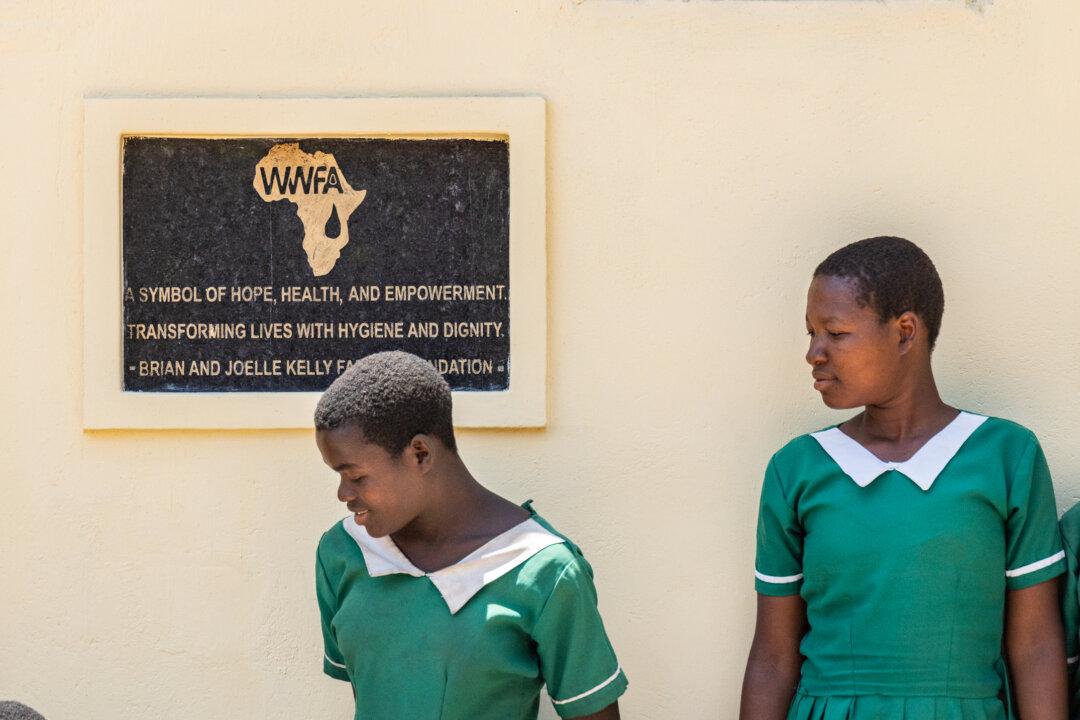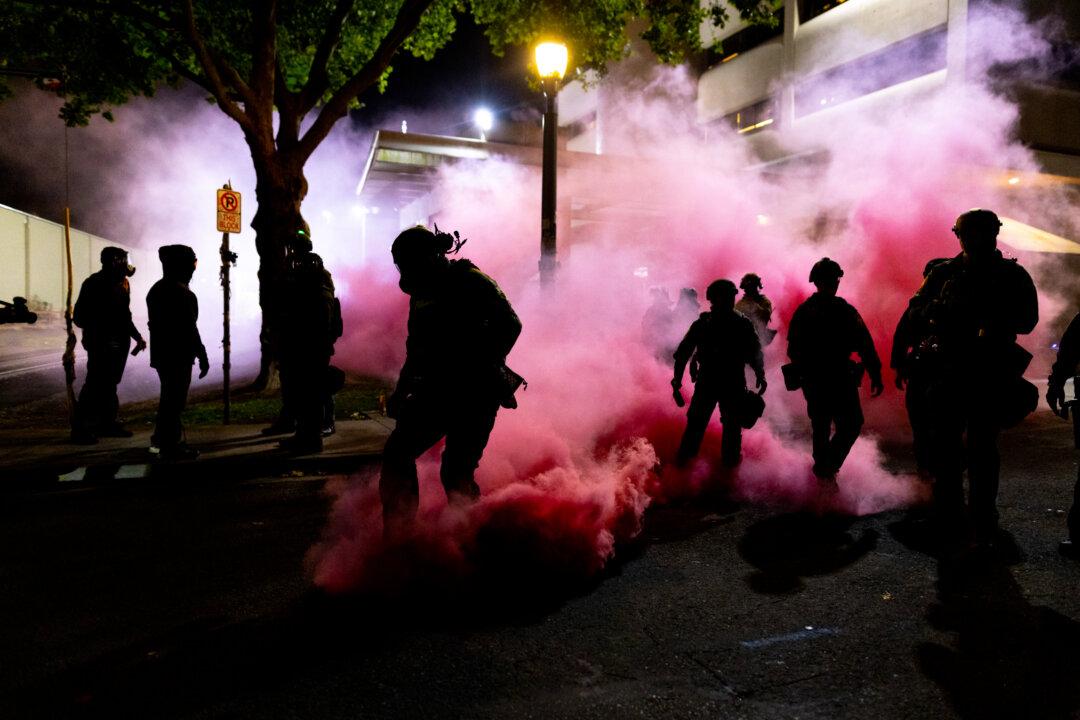MANGOCHI, Malawi—At a village one hour from the nearest paved road, girls wearing green school uniform dresses at the Nanyanje School smiled as they posed for a photograph in front of a freshly constructed building that will serve as a private hygiene center for the school’s female students.
“We were already seeing an increase in students even when the idea of private hygiene centers for the girls began to spread around the villages,” Headmaster Shadrach Chibondo Moses, told The Epoch Times. “Now with a water well and the Blossom hygiene facility, we have hundreds more students that are now enrolled, many ... new female students.”




